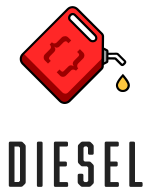API Documentation: latest release – master branch
Diesel gets rid of the boilerplate for database interaction and eliminates runtime errors without sacrificing performance. It takes full advantage of Rust's type system to create a low overhead query builder that "feels like Rust."
Supported databases:
You can configure the database backend in Cargo.toml:
[dependencies]
diesel = { version = "<version>", features = ["<postgres|mysql|sqlite>"] }Find our extensive Getting Started tutorial at https://diesel.rs/guides/getting-started. Guides on more specific features are coming soon.
If you run into problems, Diesel has a very active Gitter room. You can come ask for help at gitter.im/diesel-rs/diesel. For help with longer questions and discussion about the future of Diesel, open a discussion on GitHub Discussions.
Simple queries are a complete breeze. Loading all users from a database:
users::table.load(&mut connection)Executed SQL:
SELECT * FROM users;Loading all the posts for a user:
Post::belonging_to(user).load(&mut connection)Executed SQL:
SELECT * FROM posts WHERE user_id = 1;Diesel's powerful query builder helps you construct queries as simple or complex as you need, at zero cost.
let versions = Version::belonging_to(krate)
.select(id)
.order(num.desc())
.limit(5);
let downloads = version_downloads
.filter(date.gt(now - 90.days()))
.filter(version_id.eq_any(versions))
.order(date)
.load::<Download>(&mut conn)?;Executed SQL:
SELECT version_downloads.*
WHERE date > (NOW() - '90 days')
AND version_id = ANY(
SELECT id FROM versions
WHERE crate_id = 1
ORDER BY num DESC
LIMIT 5
)
ORDER BY dateDiesel codegen generates boilerplate for you. It lets you focus on your business logic, not mapping to and from SQL rows.
That means you can write this:
#[derive(Queryable, Selectable)]
#[diesel(table_name = downloads)]
pub struct Download {
id: i32,
version_id: i32,
downloads: i32,
counted: i32,
date: SystemTime,
}Instead of this without Diesel:
pub struct Download {
id: i32,
version_id: i32,
downloads: i32,
counted: i32,
date: SystemTime,
}
impl Download {
fn from_row(row: &Row) -> Download {
Download {
id: row.get("id"),
version_id: row.get("version_id"),
downloads: row.get("downloads"),
counted: row.get("counted"),
date: row.get("date"),
}
}
}It's not just about reading data. Diesel makes it easy to use structs for new records.
#[derive(Insertable)]
#[diesel(table_name = users)]
struct NewUser<'a> {
name: &'a str,
hair_color: Option<&'a str>,
}
let new_users = vec![
NewUser { name: "Sean", hair_color: Some("Black") },
NewUser { name: "Gordon", hair_color: None },
];
insert_into(users)
.values(&new_users)
.execute(&mut connection);Executed SQL:
INSERT INTO users (name, hair_color) VALUES
('Sean', 'Black'),
('Gordon', DEFAULT)If you need data from the rows you inserted, just change execute to get_result or get_results. Diesel will take care of the rest.
let new_users = vec![
NewUser { name: "Sean", hair_color: Some("Black") },
NewUser { name: "Gordon", hair_color: None },
];
let inserted_users = insert_into(users)
.values(&new_users)
.get_results::<User>(&mut connection);Executed SQL:
INSERT INTO users (name, hair_color) VALUES
('Sean', 'Black'),
('Gordon', DEFAULT)
RETURNING *Diesel's codegen can generate several ways to update a row, letting you encapsulate your logic in the way that makes sense for your app.
Modifying a struct:
post.published = true;
post.save_changes(&mut connection);One-off batch changes:
update(users.filter(email.like("%@spammer.com")))
.set(banned.eq(true))
.execute(&mut connection)Using a struct for encapsulation:
update(Settings::belonging_to(current_user))
.set(&settings_form)
.execute(&mut connection)There will always be certain queries that are just easier to write as raw SQL, or can't be expressed with the query builder. Even in these cases, Diesel provides an easy to use API for writing raw SQL.
#[derive(QueryableByName)]
#[diesel(table_name = users)]
struct User {
id: i32,
name: String,
organization_id: i32,
}
// Using `include_str!` allows us to keep the SQL in a
// separate file, where our editor can give us SQL specific
// syntax highlighting.
sql_query(include_str!("complex_users_by_organization.sql"))
.bind::<Integer, _>(organization_id)
.bind::<BigInt, _>(offset)
.bind::<BigInt, _>(limit)
.load::<User>(&mut conn)?;Anyone who interacts with Diesel in any space, including but not limited to this GitHub repository, must follow our code of conduct.
Licensed under either of these:
- Apache License, Version 2.0, (LICENSE-APACHE or https://www.apache.org/licenses/LICENSE-2.0)
- MIT license (LICENSE-MIT or https://opensource.org/licenses/MIT)
Before contributing, please read the contributors guide for useful information about setting up Diesel locally, coding style and common abbreviations.
Unless you explicitly state otherwise, any contribution you intentionally submit for inclusion in the work, as defined in the Apache-2.0 license, shall be dual-licensed as above, without any additional terms or conditions.


